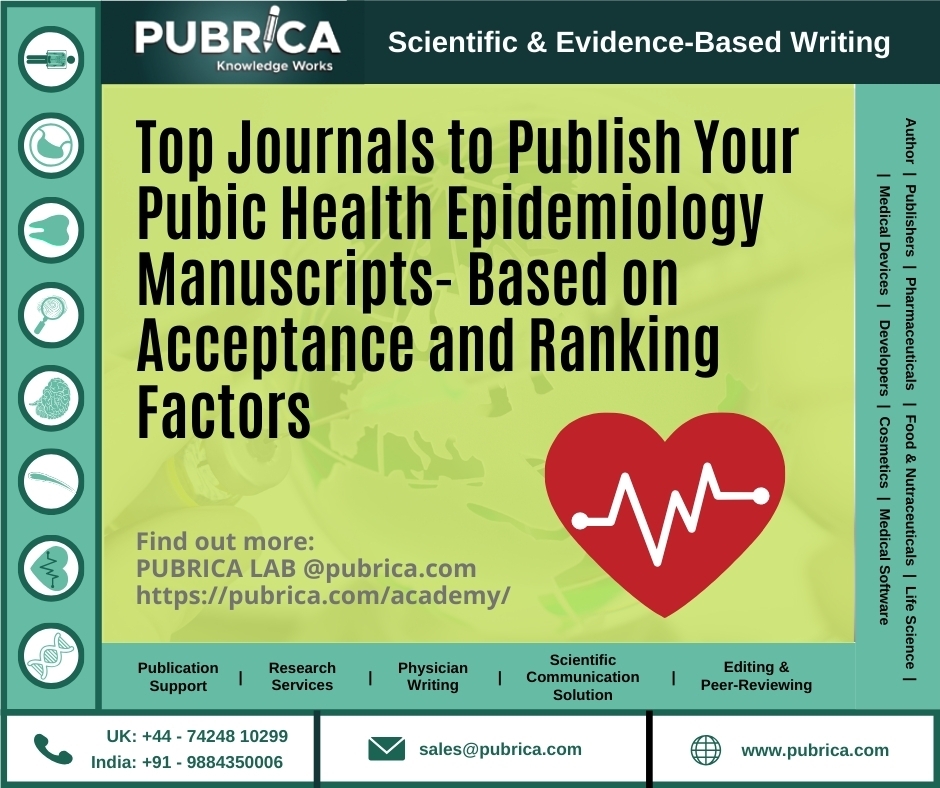
Writing An Introduction Of A Systematic Review Of Literature – A Quick Reference Table
December 27, 2019
Top Journals to Publish Public Health Epidemiology Manuscripts
January 7, 2020In Brief
- Language is a very important medium for communication.
- In the present state of modern globalization, language has become an obstacle that cannot be ignored.
- English is the lingua franca for academic correspondence and most of the high impact factor journals are published in English with a broad global readership.
- The submission of articles in poor English will hinder researchers and article publication.
During the global compilation of scientific knowledge, language barriers can lead to information gaps. English is the language that, as a lingua franca, actually governs global science practices. Nevertheless, globally, many scientists and consumers of scientific information, such as policymakers, engage in languages other than English on a daily basis, which ultimately poses obstacles to knowledge sharing across cultures. The scope of this issue is not well quantified, though, and it is worth further investigating the implications and remedies. Language barriers present a particularly serious issue in subjects of particular importance to local knowledge, such as the environmental sciences needed for the protection of biodiversity (Amano et al., 2016).
For two reasons, all scientific researchers are under pressure to publish their results in renowned English-speaking journals.
1) English is the international/universal language of scientific communication.
2) The publication of research results is an integral part of the professional life of a researcher.
Although many research articles are published in English, in the 21st century scientific researchers are an intercultural and international practice, and many authors come from a wide variety of cultural and language contexts and are non-native English speakers. Writing, however, is not the favorite activity of every researcher, and the obstacles to publishing a paper can be stressful, especially when English is not the native language of the author. Publishing research has problems: things that extend to all scientists and some that are special to scientists working in areas where English is a first or second language. It is also important to realize, in addition to language-related obstacles, that writing is a talent, whatever the language; irrespective of being non-native scientists or those who use English as their first language.
The article’s numbers submitted to Western journals are enhancing each year, with an increasing number of those submissions coming from countries where the native language is not English. Editors become increasingly unwilling to work with poorly written articles, particularly papers with errors in basic English. For some of the high-end journals, rejection rates will exceed 95 percent, a very intimidating number in new authors. The biggest issue facing non-native writers seeking to publish in English journals is continuing rejection of their article due to non-standard use of English or incorrect English. In fact, several high impact journals including PLOS and PNAS recommend that authors who need help in writing use such services before they submit (Bortolus, 2012). Language polishing services assist authors by giving them expert editors who are English native speakers and who are also skilled in the relevant subject field. The writer significantly reduces the risk that their paper will be disqualified for language mistakes alone by getting papers reviewed before sending it to the specified publication.
Conclusion
The global compilation and application of scientific knowledge continue to be hindered by language barriers. It is not an easy challenge to overcome this problem, but if done, scientists and consumers of scientific information should have far-reaching advantages in combating global environmental change and solving local environmental problems. We hope there are possible practical solutions to the methods outlined here.
Few tips for researchers on how to prepare the article and enhance their chances for publication in a high impact journal:
- Before the submission of your article, select a particular journal and conform to your article whether it is relevant to the aims and scope of the selected journal. If your article is unfit, the chances of getting rejected in the selected journal are more wasting both editor’s and your time. This is one of the main factors contributing to rejection.
- Be mindful of the journal’s layout and customize the paper to suit. It shows that in written papers you have carefully studied the publication and appreciate what its readers and editors expect.
- Make sure that you cite your sources in full and complete. In academic work, plagiarism is a main problem and publishers are gradually utilizing sophisticated software to scan documents for plagiarized material. If your paper is found to contain content that is not correctly quoted from other documents that have already been written, you not only will not get published, but you may be asked not to re-submit to that publisher.
- The article will also be edited by a professional editor for the specialized editing program, who will provide extra corrections and in-depth feedback to enhance the document’s performance.
- Before submission of your article reviewed by a native English speaker. Even if your fluency is outstanding, when you test your article, a native English speaker is likely to spot small mistakes.
Future scopes:
- With the growing importance of English language, provision for the learning of English for non-native speakers should be made available in the educational institutions.
- The training should be given by a native English speaker or professionals who are well versed in the English language.
References
- Amano T, González-Varo JP, Sutherland WJ (2016) Languages Are Still a Major Barrier to Global Science. PLoS Biol 14(12): e2000933.
- Bortolus A. Running like Alice and losing good ideas: on the quasi-compulsive use of English by non-native English speaking scientists. AMBIO. 2012;41(7):769–72. pmid:22956451
